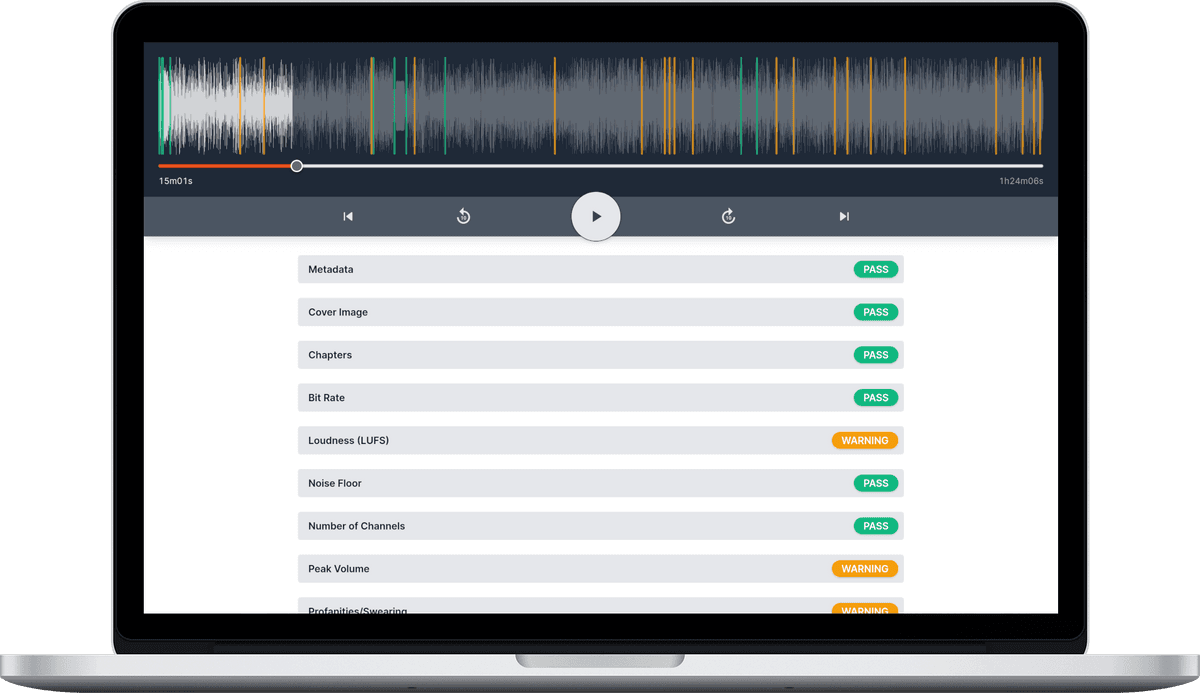Managing Your Time as a Podcaster: Productivity Tips and Tricks
![]() Damian Moore, Last updated: 20 April 2023
Damian Moore, Last updated: 20 April 2023
You’ll probably know that creating engaging and high-quality content takes time, effort, and a lot of hard work. In order to grow your audience and reach your goals, it’s important to manage your time effectively and work efficiently. In this article, we’ll share a range of strategies and tools to help you stay productive, minimise distractions, delegate tasks, and prioritise self-care. Whether you’re a seasoned podcaster or just starting out, these tips and tricks can help you make the most of your time and achieve success.
Set Goals and Priorities
As a podcaster, it’s essential to set clear goals and priorities for yourself. This will help you stay focused and organised, and ensure that you’re using your time as efficiently as possible. One way to do this is by breaking down your goals into smaller, more manageable tasks. For example, if your goal is to increase your podcast’s listenership, you might break that down into smaller tasks such as creating a social media marketing plan, reaching out to potential guests, or improving your audio quality.
Once you’ve identified your goals and broken them down into smaller tasks, it’s important to prioritise them. Some tasks will be more urgent or important than others, and you’ll need to decide which ones to tackle first. One helpful technique is the Eisenhower Matrix, which categorises tasks into four quadrants based on their urgency and importance. This can help you prioritise your tasks and ensure that you’re focusing on the ones that will have the biggest impact on your podcast. Remember, setting goals and priorities is an ongoing process, and it’s important to regularly reevaluate and adjust them as needed to stay on track and achieve your desired outcomes.
Tools like Trello and Notion can be good ways to organise your tasks and their statuses. Having them online and available to you means you can quickly go in to check them or share with others you might work with in future.
Create a Schedule
Creating a schedule is a crucial step in managing your time as a podcaster. A schedule can help you stay on track and ensure that you’re devoting enough time to all the necessary tasks, from researching and recording episodes to promoting your podcast and engaging with your audience. When creating a schedule, it’s important to take into account your personal preferences and work style. For example, if you’re a morning person, you might schedule your most important tasks for the early part of the day when you’re most alert and focused. Alternatively, if you work better in short bursts, you might schedule frequent breaks throughout the day to avoid burnout.
It’s also important to recognize that creating a schedule is just the first step – sticking to it is even more important. This requires forming habits and developing a consistent routine. By doing the same tasks at the same time each day, you can train your brain to associate certain activities with certain times of day, making it easier to stay focused and productive. Additionally, setting a regular schedule can help you avoid the temptation to procrastinate or put off important tasks, as you’ll have a set time and place to complete them each day. Checklists are a good way of acknowledging progress and giving yourself little boosts throughout the day. Remember, it can take time to develop new habits, so be patient with yourself and don’t get discouraged if it takes a few weeks or even months to fully establish your new routine.
Batch and Streamline Tasks
Batching and streamlining tasks is an effective way to manage your time as a podcaster. By grouping similar tasks together and completing them in batches, you can save time and minimise distractions. For example, instead of recording one episode at a time, you might record multiple episodes in one session, allowing you to take advantage of the time and resources you’ve already set up. Similarly, instead of checking your email or social media accounts throughout the day, you might schedule specific times to do so, reducing the likelihood of interruptions and distractions.
To implement batching and streamlining, it’s important to identify which tasks can be grouped together and completed at the same time. This might require some experimentation and adjustment, as not all tasks will fit neatly into a batch. However, with practice, you’ll likely find that batching and streamlining can help you work more efficiently and with greater focus. Additionally, you may be able to further streamline your workflow through the use of automation tools. For example, you might automate the process of publishing new episodes to your website and social media accounts, or use tools to automatically transcribe your recordings. By automating repetitive or time-consuming tasks, you can free up more time for creative work and ensure that your podcast runs smoothly.
You can read more on this topic in our related article How to Deal with Burnout as a Podcaster.
Delegate Tasks
Running a successful podcast requires many types of tasks to be carried out, from recording and editing episodes to managing social media accounts and website content. While you may be able to handle many of these tasks yourself, there may come a time when you need to delegate tasks to others in order to manage your workload effectively. Delegating tasks can help you free up time for more important or creative work, and ensure that all aspects of your podcast are managed efficiently. Depending on your needs, you may choose to delegate tasks to a virtual assistant, an audio editor, or a social media manager, among others. When delegating tasks, it’s important to communicate clearly about your expectations and provide any necessary training or resources to ensure that the task is completed to your satisfaction. By gradually increasing your delegated tasks and allowing enough time for you to review in the early stages, you can ensure that the results are timely and done to a high enough standard.
Use Tools and Technology
- Recording and editing tools: You want your show to have quality audio but consider how much time you need to spend on each episode to get it sounding right. A better microphone or fixed audio setup can save you in processing time. DAWs like Reaper, Logic Pro and Audition software support plugins like iZotope RX that can automatically clean things up. Tools like Descript can allow you to edit audio like you would a text document which is much faster.
- Productivity and organisation tools: From scheduling interviews to managing your social media accounts, it helps to plan your time. To stay organised and productive, you may need to use productivity and organisation tools such as project management software, calendar apps, and note-taking tools. Relevant tools include Trello, Google Calendar, Calendly, and Notion.
- Transcription and captioning tools: Making your podcast accessible to a wider audience is an important consideration. Transcriptions can help deaf or hard-of-hearing listeners, improve SEO, allow keyword searching and save time for those who prefer to read rather than listen. Audio Audit automatically transcribes audio for each check you run. There are also specialist transcription and captioning tools available, such as Rev, Temi, and Otter.ai.
- Marketing and promotion tools: In order to grow your podcast audience, you’ll need to market and promote your show effectively. This might involve using social media management tools, email marketing software, or advertising platforms. Examples of marketing and promotion tools include Buffer, Hootsuite, and Mailchimp.
- Analytics and tracking tools: To understand how your podcast is performing and make data-driven decisions, you’ll need to use analytics and tracking tools. These might include tools for tracking website traffic, social media engagement, and podcast downloads. Looking at what shows are most popular can help you plan shows that are going to grow your audience quicker. Examples of analytics and tracking tools include Podtrac, Chartable, and Buzzsprout.
Using these types of tools and technology can help you work more efficiently, improve the quality of your podcast, and grow your audience. By investing time and money in the right tools for your needs you can maximise your productivity.
Minimise Distractions
Distractions can be a major drain on your productivity as a podcaster. Whether it’s email notifications, social media updates, or interruptions from family members or co-workers, distractions can disrupt your focus and make it difficult to complete tasks efficiently. To minimise distractions, it’s important to create a work environment that supports your productivity goals. This might mean setting up a designated workspace with minimal distractions, such as a quiet room or a co-working space with noise-cancelling headphones. It can also mean turning off notifications or using tools to limit your access to social media or other distracting websites during your work hours.
Another way to minimise distractions is to practise mindfulness and focus on the task at hand. This might involve using techniques such as the Pomodoro Technique, which involves working for a set period of time (usually 25 minutes) and then taking a short break before resuming work. By focusing on one task at a time and breaking your work into manageable chunks, you can reduce the likelihood of distractions and improve your overall productivity. Additionally, it can be helpful to establish clear boundaries with family members, friends, or co-workers to ensure that they understand the importance of your work and minimise interruptions during your work hours. By taking steps to minimise distractions, you can stay focused and accomplish more in less time, allowing you to create high-quality podcast content while maintaining a healthy work-life balance.
Take Breaks and Practice Self-Care
In the fast-paced world of podcasting, it’s easy to get caught up in a cycle of constant work and forget to take care of yourself. However, taking breaks and practising self-care is essential to maintain your productivity, creativity, and overall well-being. Regular breaks can help you recharge your batteries and avoid burnout, while self-care practices such as exercise, meditation, and getting enough sleep can help reduce stress and improve your mental and physical health. It’s important to prioritise self-care and make it a part of your daily routine, whether that means scheduling breaks throughout your work day, taking time off to relax and recharge, or engaging in activities that bring you joy and fulfilment outside of your podcasting work. Remember, taking care of yourself is not a luxury, it’s a necessity, and by doing so, you’ll be able to show up as your best self for your podcast and your audience.
Conclusion

In this article we covered a range of strategies and tools to help you work more efficiently and effectively as a podcaster. By setting goals and priorities, creating a schedule, batching and streamlining tasks, minimising distractions, delegating tasks, and using tools and technology, you can maximise your productivity and grow your podcast audience. Additionally, taking breaks and practising self-care is essential to maintain your well-being and avoid burnout. By implementing these strategies and using the right tools for your needs, you can become a more productive and successful podcaster.
—
Images courtesy of Jon Tyson and Aaron Burden

